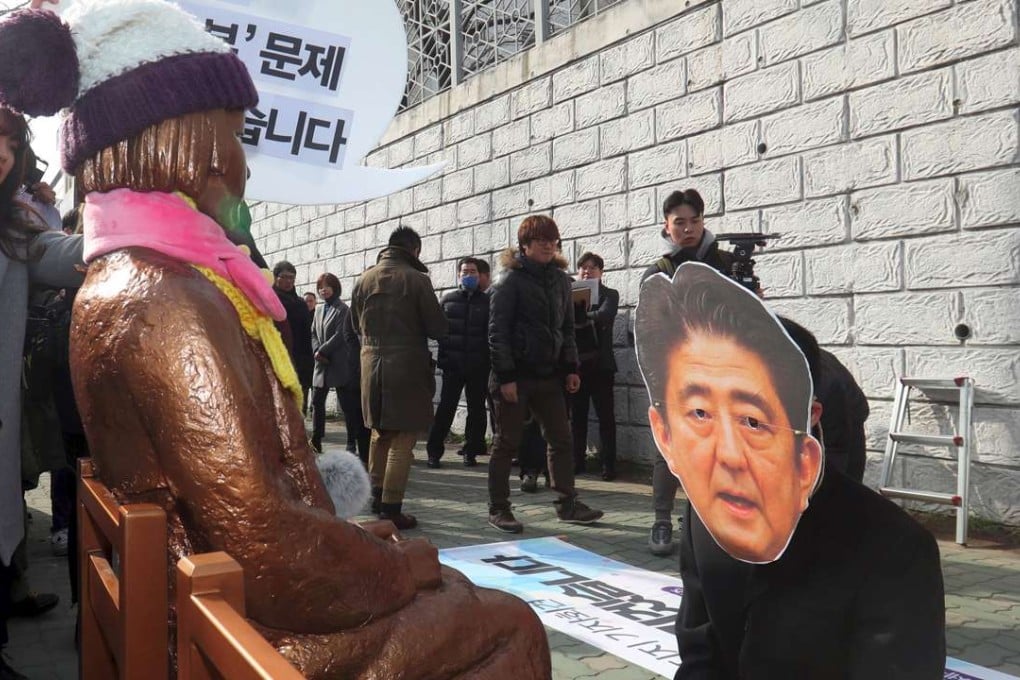Can Korea handle the truth about Japan’s 'comfort women'?
As a stalemate emerges in the countries’ dispute over wartime sex slaves, Seoul’s refusal to hear dissenting views must shoulder some of the blame for the deadlock

With its recall of two diplomats this week, Japan appears to have upped the ante in its long-running dispute with Korea over its use of wartime sex slaves, reigniting enmities over an issue that had until recently seemed tantalisingly close to a conclusion.
And standing in the way of what might have been a watershed moment in diplomatic relations between the two countries? The statue of a teenage girl.
Rewind just a year and it appeared Seoul and Tokyo had reached a measure of closure over wartime Japan’s use of what were euphemistically known as “comfort women” – the reportedly hundreds of thousands of women, mainly from Korea, recruited to serve in its military-run brothels during the second world war.
WATCH: Japan to recall its South Korea envoy over ‘comfort women’ statue
But any lingering such notions were dispelled when Nagamine Yasumasa, the ambassador to South Korea, and Morimoto Yasuhiro, the consul general in Busan, returned to Japan on January 9.
That move, prompted by Tokyo’s displeasure over statues symbolising “comfort women” in front of the Japanese embassy in Seoul and consulate in Busan, was the first high-level diplomatic recall by Japan since August 2012, when South Korea’s then president, Lee Myung-bak, visited the disputed islets of Dokdo (known as Takeshima in Japan).

Yet chances of the two countries putting the issue behind them had once, albeit briefly, seemed so promising. On December 28, 2015, Japanese Foreign Minister Kishida Fumio and South Korean Foreign Minister Yun Byung-se struck a landmark deal in which Tokyo agreed to pay 1 billion yen (HK$67 million) to the surviving victims and issue a formal apology.
